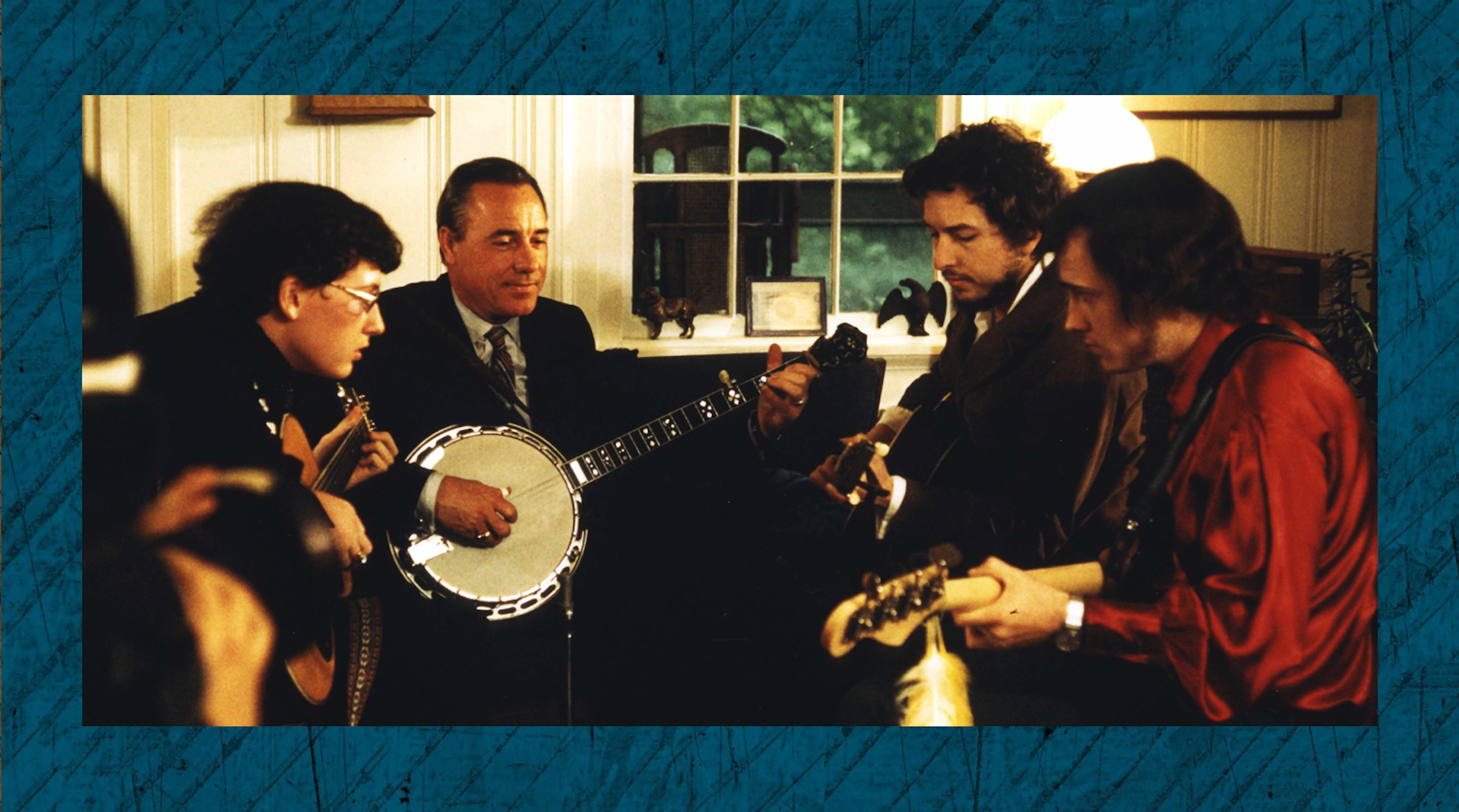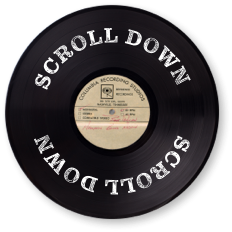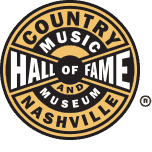

As the counterculture spread to Middle America, Nashville’s music scene inevitably changed. Musically adventurous local bands such as Area Code 615 became part of the city’s growing pop-rock landscape. Dylan’s lyrics influenced Kris Kristofferson and other Nashville songwriters. Working with his sons, bluegrass legend Earl Scruggs embraced the next generation and its music.
Part 5
A New Music City

Area Code 615’s second album, released in 1970
Top image, left to right: Randy Scruggs, Earl Scruggs, Bob Dylan, and Gary Scruggs
Nashville’s Changing Scene
Taking their name from Nashville’s telephone area code, a core of session musicians who had recorded with Bob Dylan, Elvis Presley, and other visiting non-country acts recorded their own album project in 1969, working with producer Elliot Mazer. Area Code 615 consisted of Kenny Buttrey, Mac Gayden, Charlie McCoy, Norbert Putnam, David Briggs, Buddy Spicher, Weldon Myrick, Wayne Moss, and Bobby Thompson. With their freewheeling mix of country, rock, soul, blues, and bluegrass, the group explored new musical terrain on two critically acclaimed albums.
Opening near the Vanderbilt University campus in 1971, the Exit/In nightclub gave Nashville musicians, as well as touring acts, a venue for live performances. Co-owner Liz Thiels described the atmosphere in the club at the time as “radical…with a real San Francisco-inspired feel.” Singer-songwriter Guy Clark and banjo-playing comedian Steve Martin were among the performers who honed their skills at the Exit/In in its early years.
Advertisement for Nashville’s Exit/In
Advertisement for Nashville’s Exit/In

Linda Ronstadt and Earl Scruggs, c. 1972
Earl Scruggs
Lester Flatt and Earl Scruggs had achieved international renown as bluegrass duo Flatt & Scruggs by the time they shared a Carnegie Hall concert bill with Joan Baez in 1964. Columbia Records producer Bob Johnston encouraged the duo and their band, the Foggy Mountain Boys, to update their traditional repertoire with songs by Bob Dylan, Leonard Cohen, and other contemporary songwriters. Banjo master Scruggs embraced the idea, while singer and guitarist Flatt resisted.
Business and creative differences ended the partnership in 1969, and Scruggs recruited his sons Gary and Randy to form the Earl Scruggs Revue. Incorporating elements of rock, the band featured Gary on lead vocals, bass, and harmonica; Randy on electric and acoustic guitar; Bob Wilson on piano; and Jody Maphis on drums. Youngest son Steve Scruggs joined the band later on keyboards.
With a progressive blend of roots music and rock, the Scruggs Revue reached across the cultural and political divides of the day, playing to college audiences around the country. When the Nitty Gritty Dirt Band came to Nashville from California to record their landmark 1972 album, Will the Circle Be Unbroken, Earl, Gary, and Randy were part of the proceedings. Earl also performed with Dylan, Cohen, the Byrds, Linda Ronstadt, and other rock acts in various musical configurations and settings. He embraced the next generation and its music.

In 1972, Earl Scruggs ventured out into collaborations with other famous artists on the album, I Saw the Light with Some Help from My Friends.

New Songs
A new breed of Nashville-based singer-songwriters incorporated the freedom found in Bob Dylan’s influence and inspiration. They included Tom T. Hall, John Hartford, Kris Kristofferson, and Mickey Newbury. Uniquely original songs such as Kristofferson’s “Sunday Morning Coming Down” and Hartford’s “Gentle on My Mind” became hits for Johnny Cash and Glen Campbell, bringing a literary quality to country music while expanding the range of subject matter and self-expression acceptable to country audiences.
